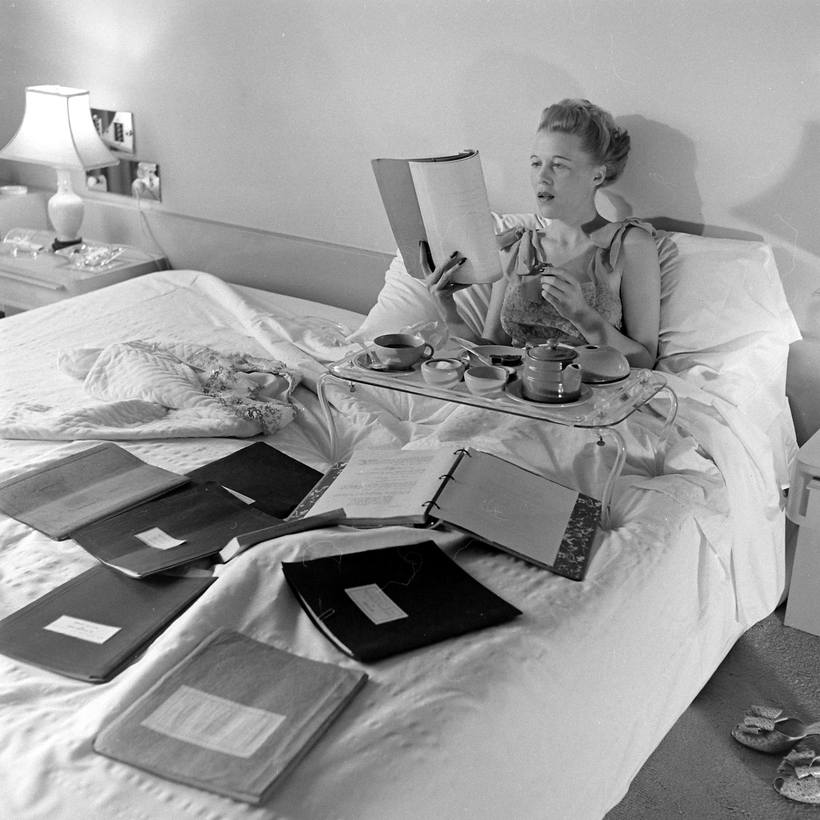To the film devotees who are aware of her, Joan Harrison was the beautiful blonde who was hired as director Alfred Hitchcock’s secretary in 1933, when she was only 26. Quickly proving to be the worst secretary he ever had, she was promoted to script reader and story editor, eventually winning an Academy Award nomination for co-writing the 1940 best-picture winner, Rebecca. Harrison struck out on her own to become one of the few female producers in the studio system of the 1940s, spending the next decade making noir films—including the 1944 genre favorite Phantom Lady—before rejoining Hitchcock to produce the television series Alfred Hitchcock Presents and The Alfred Hitchcock Hour.
In this version of the story, it was Hitchcock who made Harrison; when doing research for my book Phantom Lady: Hollywood Producer Joan Harrison, the Forgotten Woman Behind Hitchcock, I discovered that Harrison and Hitchcock were much closer to being creative equals. Early on in Hitchcock’s career—he was still a London-based director when they met—Harrison was already serving as both creative producer and line producer, managing the day-to-day.


